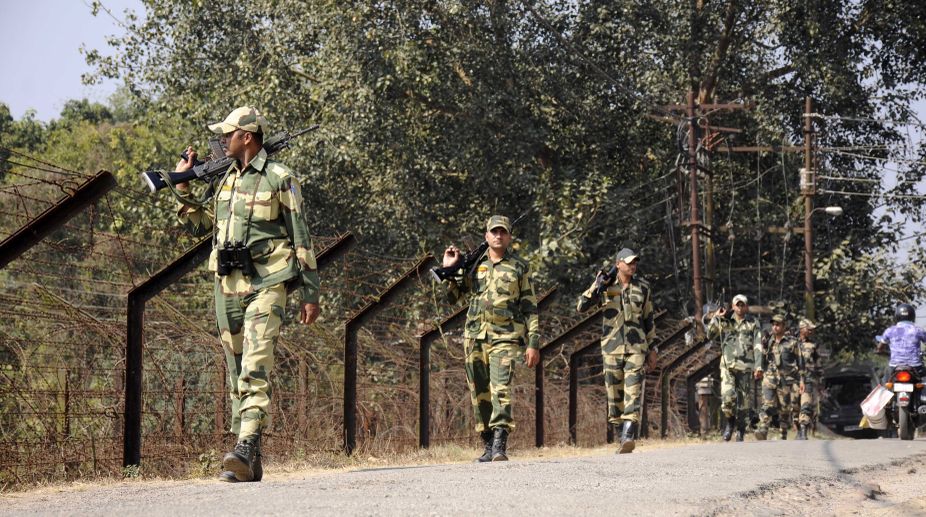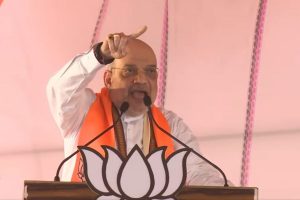Federal India began her journey with multi-dimensional challenges. This is natural for any nation. Whims or moral lessons do not run a nation. What matters is obviously the interest of different stakeholders. Naturally, the prosperity of a nation depends on balancing interests among the stakeholders. Balancing interests is always tougher in a democracy for obvious reasons. Democracy is not poetic but prosaic. Academic pundits and purists may sneer at this. The fact is, those who romanticise democracy ultimately ignore the ground reality. There is no reason to praise or defame the cocktail called democracy made of agenda, politics, interests, aspirations and hypocrisy. But these elements keep moving the wheel of a nation. This is the reality of every democratic nation. India is certainly no exception. However, the important point is not counting drawbacks but to perceive the ground reality with a holistic approach to address the issues to minimise discords and internal conflicts. In academic discussion, this debate is very positive for democracy. There is nothing wrong with this perception. But the reality is not always rosy. The question is not about perception and reality. It is not about patience, flexibility and idealism either. What makes India suffer is obviously prejudice and pseudo-idealism. Under this light, things should be discussed to heed reality. The issues related to north-east India are no exception.
As far as India’s north-eastern region is concerned, it has always been a troubled region. This does not mean that the rest of India is paradise. Problems exist everywhere. However, the issue of the north-east is of a different genre. The problem is New Delhi is ignorant about this and never ready to learn. Successive governments of India and the state governments of north-eastern states seem to take things for granted in the context of the northeast. The region is vulnerable for the geo-strategic location. But the internal dynamics of the northeast have always been a challenge of greater intensity since 1947. But one thing is obvious: along with other factors, the approach of New Delhi has aggravated the challenge in the region.
Advertisement
In a vast country like India, inter-state border disputes are very common. But it will be wrong to judge border disputes between the north-east and other parts of India from the same parameter. The border discord has always been a very sensitive issue in the Northeast. It is one of the major causes of unrest in northeastern states. One example is enough to prove its intensity: the conflict between Assam police and Mizoram police in 2021, which virtually looked like a full-scale war between two sovereign nations. Naturally, any effort to resolve the vexed border issue bears special significance for the north-east and larger national interests.
However, it is undeniable that both New Delhi and the state governments of the north-east seemed to be taking a proactive approach to sorting out this issue. The enhanced effort to resolve border disputes in the north-east during the last few years deserves appreciation. The Assam chief minister played a significant role in this regard to sort out border issues between Assam and other north-eastern states. So also, some developments took place to resolve border disputes among other north-eastern states. As a part of this, a significant development took place recently. As per media reports, Union Home Secretary Govind Mohan assessed the progress on the border agreements signed between Assam and Meghalaya and Assam and Arunachal Pradesh. The decision to complete survey work for the six areas of dispute on the Assam-Meghalaya border and 38 identified villages along the Assam-Arunachal Pradesh border within the next six months obviously shows a committed approach, which is certainly rare in the context of the north-east. However, the north-east hails such significant development.
Sorting interstate border disputes anywhere in the country is significant. But in the context of the northeast, it is overcoming a potential strategic challenge. The success of such an initiative depends on several factors. However, this will be historic indeed if things materialise. But reality is, this does not seem likely. Reason is simple. The point is: interstate border disputes among different states of the north-east are not political issues. Naturally, there is a big question mark: whether political consensus can resolve this. No doubt, the northeast evolved as a new ground for experimenting with saffron politics. The concept of double-engine government is a reality here. However, this is a different ballgame in the northeast. The unique identity affiliation of the people across north-eastern India has been the prime reason behind conflicts in the region. Both the identity and the strife for its preservation are the genesis of turmoil here. The agreement was signed between Assam and Meghalaya in March 2022 and the one between Assam and Arunachal Pradesh in April 2023. But the political initiatives have not succeeded in sorting out the issues of disputed areas yet. This may look like a small issue. But in the context of the northeast, this is challenging. The ethnic identity issue is a prominent reason behind this. Apart from this, the status of different communities living across the northeast is not the same. If a community is enjoying scheduled tribe status in one state, the same community is not enjoying equal status in other states. Naturally, such sections would oppose. The autonomous councils provide privileges to certain communities. But if the community loses the opportunity in another state, they will naturally oppose it. Whatever be said, these are legitimate concerns of the rank and file living in the north-east. Similarly, there are other stakeholders like ethnic organisations, students’ forums, and others. Their opinions matter to resolve the issue.
This reveals one important fact: trust deficits are persistent among different ethnic communities residing in the bordering areas. This is true because people in the region want the ongoing initiative to succeed. But the question remains where it began. The need is to balance the needs and aspirations of different sections living in the border area. The only option is to win the confidence of the people. Consensus needs at the grass-root level through the assurance of preserving distinctive identities and privileges irrespective of affiliations. Will the government think about it? Let’s hope for the best.
The writer is an independent contributor
















